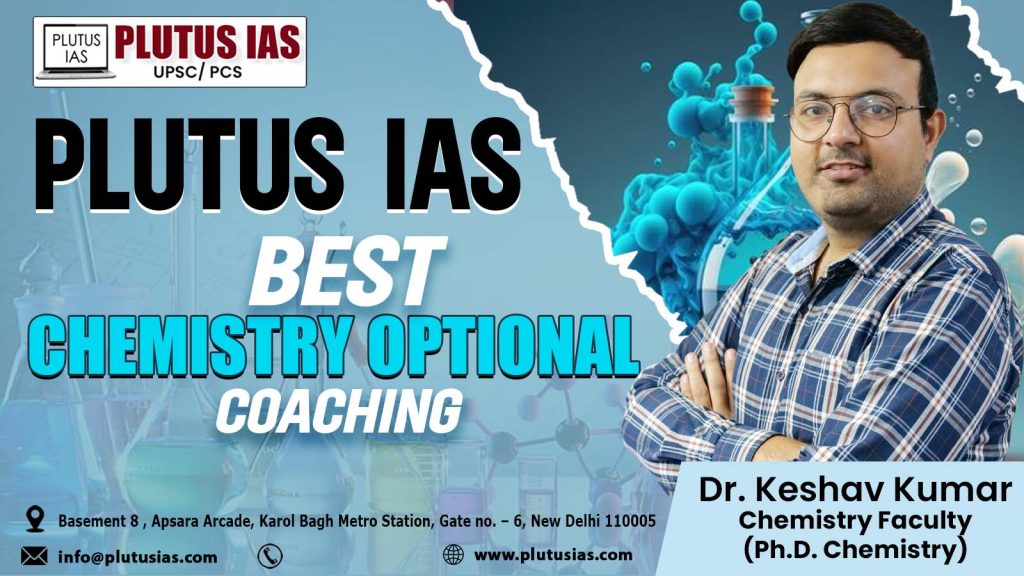
706 1st Floor Dr. Mukherjee Nagar Near Batra Cinema Delhi – 110009
Chemistry as an Optional Subject: A Comprehensive Overview
Introduction
Chemistry, often dubbed the “central science,” investigates the composition, structure, properties, and transformations of matter. It serves as a bridge between physics and biology, playing a vital role in various scientific disciplines and everyday life. Choosing chemistry as an optional subject can enhance critical thinking skills and provide a solid foundation in understanding the chemical processes that influence our world.
Importance of Chemistry
- Foundation for Science and Medicine: Chemistry is essential for fields such as biology, environmental science, and medicine. It offers crucial insights for understanding biological mechanisms, developing pharmaceuticals, and promoting environmental sustainability.
- Critical Thinking and Problem-Solving: The study of chemistry cultivates analytical skills, encouraging students to approach problems systematically and think critically about experimental outcomes and chemical reactions.
- Real-World Applications: Knowledge of chemistry is relevant across various industries, including pharmaceuticals, agriculture, materials science, and energy. It equips students to understand and tackle real-world challenges like pollution, energy management, and health issues.
Syllabus Overview
While the curriculum for chemistry may vary among educational institutions or examination boards, typical topics include:
- Physical Chemistry: Examination of the principles governing chemical reactions, thermodynamics, and kinetics.
- Inorganic Chemistry: Study of the properties and behaviors of inorganic compounds, including metals and non-metals.
- Organic Chemistry: Focus on the structure, properties, reactions, and synthesis of organic molecules.
- Analytical Chemistry: Techniques for analyzing substances to determine their composition and concentration.
- Biochemistry: Exploration of the chemical processes occurring within and related to living organisms.
Preparation Strategies
- Conceptual Understanding: Emphasize grasping fundamental concepts and theories instead of mere memorization. Relating chemistry to everyday occurrences can improve comprehension.
- Practical Laboratory Skills: Engage in hands-on laboratory experiments. Practical experience solidifies theoretical knowledge and develops essential experimental skills.
- Problem-Solving Practice: Regularly tackle chemical equations, stoichiometry, and reaction mechanisms. This practice is crucial for mastering the application of theoretical concepts.
- Revision and Practice Exams: Consistently review material and take mock exams to evaluate your understanding and identify areas that need improvement. Practicing under exam conditions can build confidence.
- Utilizing Resources: Leverage textbooks, online lectures, videos, and chemistry forums to deepen your knowledge. Joining study groups can facilitate collaborative learning through shared insights.
Conclusion
Choosing chemistry as an optional subject provides a profound understanding of the chemical processes that shape our environment. Its focus on critical thinking, problem-solving, and real-world applications makes it an excellent choice for students aspiring to careers in science, technology, engineering, and medicine (STEM). With dedicated study and active involvement, students can thrive in this challenging yet rewarding subject, equipping themselves with the knowledge and skills necessary to address future scientific challenges.
